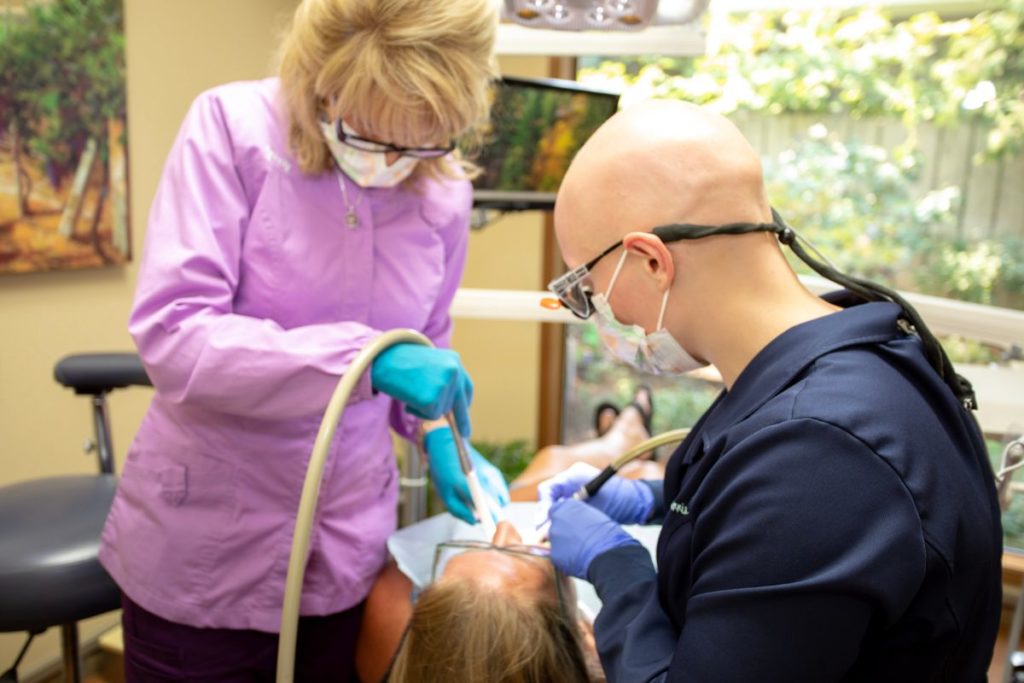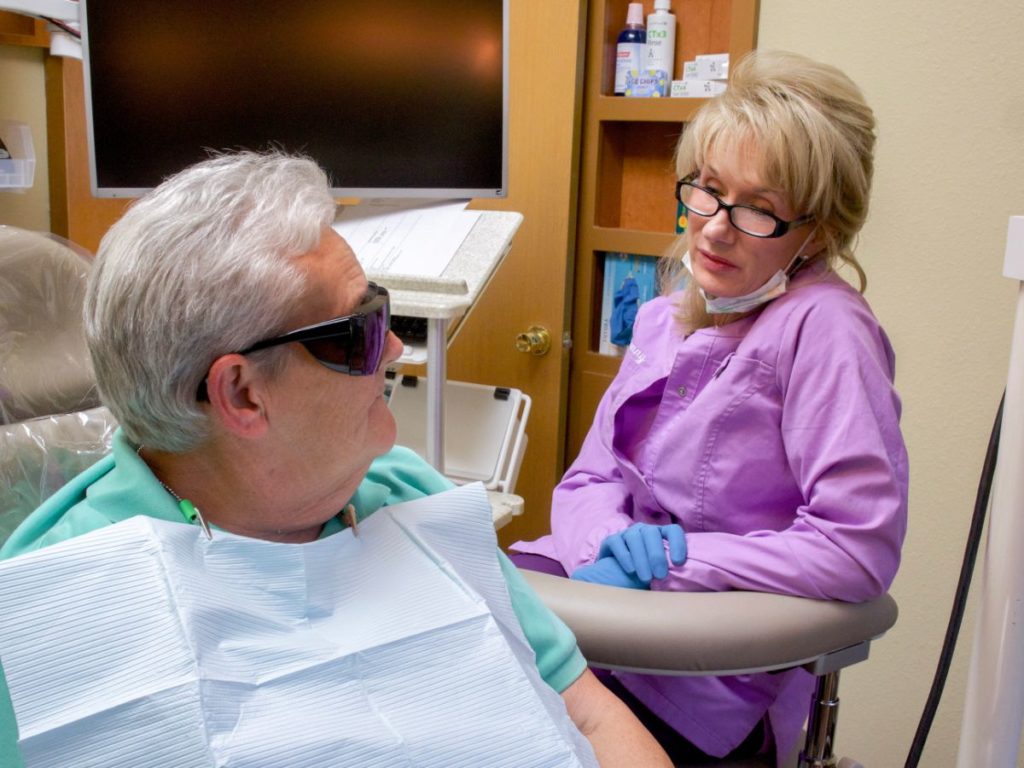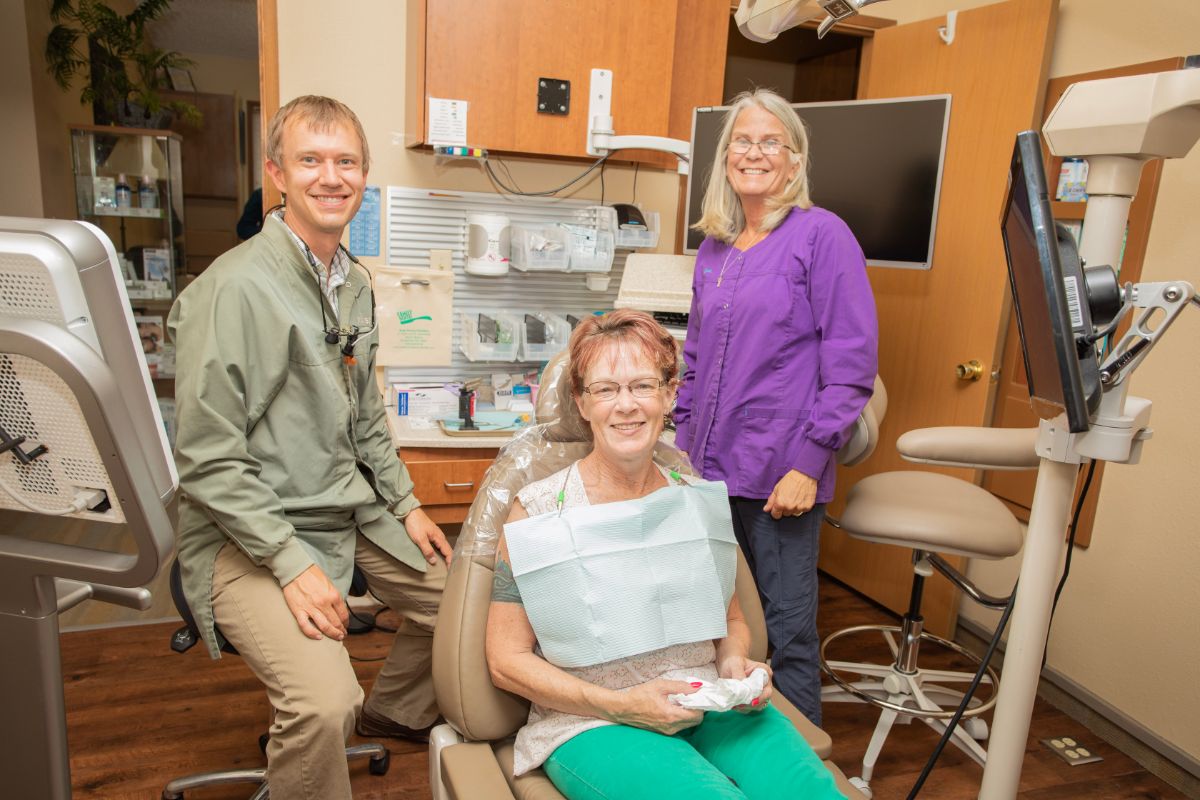Here at Cashmere Family Dentistry, we often hear from patients experiencing problems with their jaw or facial muscles. They complain of pain in the jaw, general discomfort in the surrounding areas, or even difficulties with chewing. While these symptoms can have various causes, one of the most common is temporomandibular joint disorder, which is generally referred to as TMD.
TMD is a broad term we use to describe the type of jaw pain and dysfunction that can happen if there’s something “off” with the muscles and joints of the jaw. This could be a structural issue with the hinging joint itself, a problem with the muscles that support it, or sometimes both. These areas are highly complex and full of nerve tissue, so when something goes wrong, it can cause a wide range of symptoms. Let’s take a closer look at what TMD can mean for your dental health and what we can do to treat it!
Is TMJ the same thing as TMD?
We see these two abbreviations used interchangeably all the time, but they are definitely not the same thing. TMJ isn’t actually a disease or illness—it stands for the temporomandibular joint. These hinge points are located directly in front of the ears and connect the jawbones to the head. The TMJ is exceptionally mobile. It can rotate, glide, and act as a powerful hinge all at once, and it’s also what gives us the ability to speak and chew our food.
The TMJ is surrounded by many components, including tendons, muscles, and joint pads. These complex protectors work well together most of the time, but if they’re knocked off course for any reason, it can cause problems. That’s where TMD, or temporomandibular joint disorder, comes in! So the two are connected, but very different.

What are the symptoms and signs of TMD?
Because the TMJ is one of the joints we use the most, TMD can be especially frustrating. While every case is different, there is a common set of symptoms associated with this disorder. Some are mild, while others are quite serious. Some may show up intermittently, while others take years to resolve. If you’ve experienced any of the following signs of TMD, we encourage you to contact us for an evaluation.
- Pain or tenderness in the face, jaw joint, neck, and shoulders
- Pain in or around the ear when chewing, speaking, or opening the mouth wide
- Difficulty opening the mouth wide
- Jaws that get stuck or locked in an open- or closed-mouth position
- Popping or grating sounds in the jaw joint when you open or close your mouth
- Popping, grating, or other sounds in the jaw when chewing
- A “tired” feeling in the face
- Difficulty chewing
- Feeling as though your upper and lower teeth are not fitting together properly
- Swelling on the side of your face
- Ringing or stuffy ears
The symptoms of TMD can be similar to many other common dental issues, including tooth decay and gum disease. They can also mimic those experienced by people with certain medical conditions, such as arthritis. A thorough examination by an experienced dental professional is necessary for a proper diagnosis and appropriate treatment.
What causes TMD?
The underlying cause of all TMD symptoms is a problem with the muscles of your jaw, or with the parts of the joint itself. Those problems can come from a variety of sources, including:
- injury to your jaw, the joint, or the muscles of your head and neck
- grinding or clenching your teeth
- movement of the soft cushion or disc between the ball and socket of the joint
- arthritis in the TMJ
- stress
- a bad bite or misaligned jaw
All of the above can place undue stress on the sensitive components of the TMJ. Because they are connected, this may result in pain and discomfort in the face, neck, shoulders, back, and arms, among other symptoms.
How is TMD diagnosed?
At Cashmere Family Dentistry, we’re able to combine the latest in dental techniques and technology to pinpoint the source of a patient’s TMD. To present you with an accurate diagnosis, we can use methods such as:
- measuring aspects of the teeth and jaw
- determining the jaw’s proper resting position
- mapping the movement of the jaw during speaking and eating
Once we’ve found the source of your TMD and provided you with a proper diagnosis, we’ll work with you to create a customized treatment plan.
How is TMD treated?
As noted above, the symptoms of TMD can be wide and varied. Many people will have relatively mild symptoms that only appear periodically. These often improve on their own within a few weeks or months without any professional treatment. Sticking to soft foods and applying ice or moist heat can help. Avoiding extreme jaw movements like wide yawning and gum chewing is another simple way to relieve TMJ-related symptoms.
If intervention is indicated, we prefer conservative and reversible treatments whenever possible. These don’t involve surgery and shouldn’t produce any permanent changes in the structure or position of the teeth and jaw. Most patients won’t require more aggressive forms of treatment even if their TMD symptoms become more persistent or painful.
One example of conservative treatment is splints or night guards, which fit over the upper and lower teeth to keep them from touching. Wearing one of these plastic mouthguards can lessen the negative effects of clenching or grinding the teeth. They can also help correct the bite by putting teeth in a more desirable position. For more serious cases of TMD, we may need to replace missing teeth or use crowns and bridges to balance the biting surfaces of the teeth. If complex bite correction is needed, orthodontic treatment such as braces or clear aligners could be the best choice.

Tackle TMD symptoms with help from Cashmere Family Dentistry
When left untreated, TMD symptoms may include inflammation, swelling, and chronic pain. The disorder can also contribute to progressive dental problems like premature tooth wear and periodontal disease. That’s one reason we encourage anyone with TMD symptoms to get in touch with an experienced dentist.
Fortunately, we have three of them here at Cashmere Family Dentistry! Whether you have symptoms of TMD yourself, suspect it in a loved one, or want to learn more about TMD diagnosis and treatment, get in touch with us today to schedule a consultation. Our expert team is here to give you a healthy, happy, and pain-free smile!




